-
 bitcoin
bitcoin $106680.127705 USD
0.67% -
 ethereum
ethereum $3615.722480 USD
-0.65% -
 tether
tether $0.999925 USD
-0.04% -
 xrp
xrp $2.550072 USD
5.91% -
 bnb
bnb $1002.572269 USD
-0.90% -
 solana
solana $168.746669 USD
1.08% -
 usd-coin
usd-coin $0.999832 USD
-0.03% -
 tron
tron $0.297244 USD
1.97% -
 dogecoin
dogecoin $0.182965 USD
0.71% -
 cardano
cardano $0.600432 USD
2.56% -
 hyperliquid
hyperliquid $41.439691 USD
-1.57% -
 chainlink
chainlink $16.548399 USD
2.40% -
 bitcoin-cash
bitcoin-cash $524.993680 USD
3.45% -
 stellar
stellar $0.302259 USD
4.10% -
 zcash
zcash $539.994871 USD
-16.31%
What Is an Ethereum Virtual Machine (EVM)?
The Ethereum Virtual Machine (EVM) provides a secure and decentralized platform for executing smart contracts and decentralized applications (dApps).
Nov 04, 2024 at 03:15 am
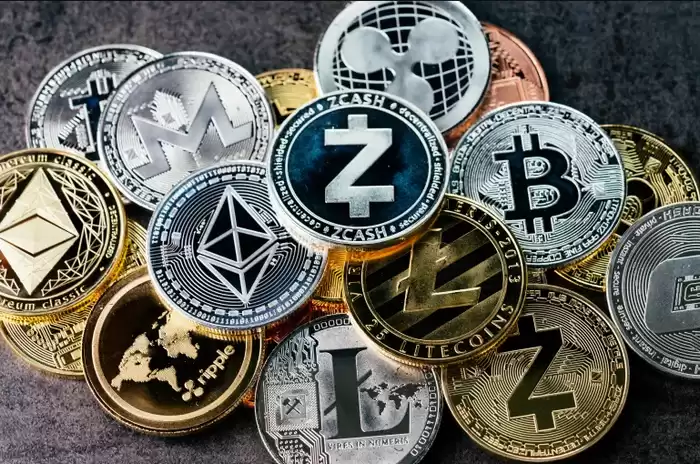
What is Ethereum Virtual Machine (EVM)?
The Ethereum Virtual Machine (EVM) is a software platform that serves as the foundation of the Ethereum blockchain network. It operates as a decentralized computer that facilitates the execution of smart contracts and decentralized applications, known as dApps. The EVM is central to the Ethereum ecosystem, providing a reliable and secure environment for running these software programs.
Understanding the EVM
- Runtime Environment: The EVM operates as a runtime environment, providing the necessary infrastructure to run smart contracts written in Solidity, JavaScript, or other compatible languages. It incorporates a set of predefined instructions or opcodes that specify the actions that the EVM can perform.
- Transaction Processing: When a transaction is initiated on the Ethereum network, involving transferring ETH or executing a smart contract, it is first submitted to the network of nodes. The EVM on each node then validates and executes the transaction, ensuring its authenticity and compliance with Ethereum's rules and regulations.
- State Management: The EVM maintains a global state that records all the actions performed on the Ethereum network. This state includes the account balances of all users, the code and data of smart contracts, and other relevant information. Each block in the Ethereum blockchain captures and reflects the state changes resulting from transactions processed within that block.
- Gas Mechanism: The EVM operates under the concept of 'gas', which is the computational energy required to process transactions and execute smart contracts. Users pay a gas fee, denominated in ETH, proportional to the resources consumed during the operation. This fee serves as an incentive for network participants to contribute their computational power to the blockchain's functioning.
Significance of the EVM
- Decentralization and Security: The EVM's decentralized nature and immutability contribute to the security and transparency of the Ethereum network. It prevents any single entity from exercising control over the platform and ensures that the execution of smart contracts is fair and reliable.
- Smart Contracts and dApps: The EVM enables the creation and execution of smart contracts, self-executing programs that operate on the blockchain. Through these smart contracts, developers can build dApps for various applications, including decentralized finance, gaming, supply chain management, and more.
- Cross-Platform Compatibility: The EVM's functionality is not limited to Ethereum alone. Other blockchains, such as Avalanche and Polygon, have adopted the EVM or compatible virtual machines, allowing cross-platform compatibility for smart contracts and dApps.
Conclusion
The Ethereum Virtual Machine (EVM) is the core infrastructure of the Ethereum blockchain, facilitating the execution of smart contracts and decentralized applications. Its decentralized nature, security features, and support for various programming languages have made it a fundamental platform for innovation and advancements in the blockchain industry. Understanding the EVM's capabilities and limitations is essential for developers seeking to harness the potential of blockchain technology.
Disclaimer:info@kdj.com
The information provided is not trading advice. kdj.com does not assume any responsibility for any investments made based on the information provided in this article. Cryptocurrencies are highly volatile and it is highly recommended that you invest with caution after thorough research!
If you believe that the content used on this website infringes your copyright, please contact us immediately (info@kdj.com) and we will delete it promptly.
- Cryptocurrencies, Long-Term & BlockDAG: Navigating the Future in 2025
- 2025-11-12 01:30:01
- Navigating Crypto Investment: The Rise of Super Platforms and Unified Ecosystems
- 2025-11-12 01:50:01
- Canton Network's Wild Ride: Price Dip, Exchange Listings, and What It All Means
- 2025-11-12 01:20:02
- Dogecoin's Dollar Dream: Can This Low-Cap Coin Actually Reach $1?
- 2025-11-12 01:10:02
- AI Tokens, SoftBank, and NVIDIA Stake: A New York Minute on Tech's Latest Moves
- 2025-11-12 01:45:01
- Mastercard, Humanity Protocol, and Private Finance: A New Era?
- 2025-11-12 01:10:01
Related knowledge
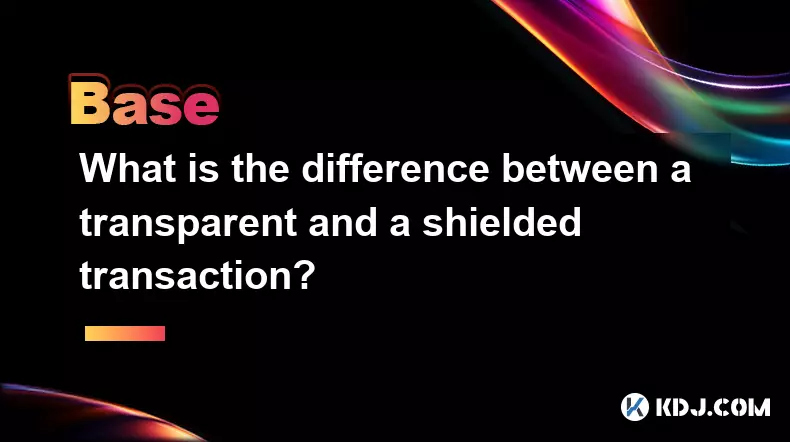
What is the difference between a transparent and a shielded transaction?
Nov 10,2025 at 05:59pm
Understanding Transparent Transactions in Cryptocurrency1. Transparent transactions are the standard form of transaction on most public blockchains li...
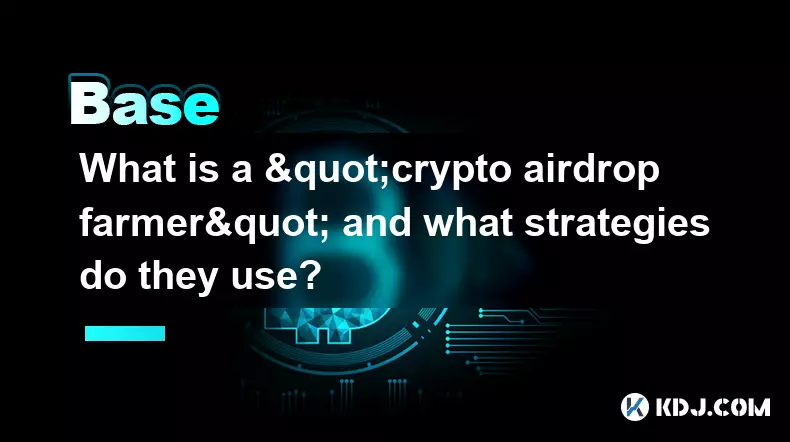
What is a "crypto airdrop farmer" and what strategies do they use?
Nov 09,2025 at 03:39pm
What Is a Crypto Airdrop Farmer?1. A crypto airdrop farmer is an individual who actively participates in blockchain projects to qualify for free token...
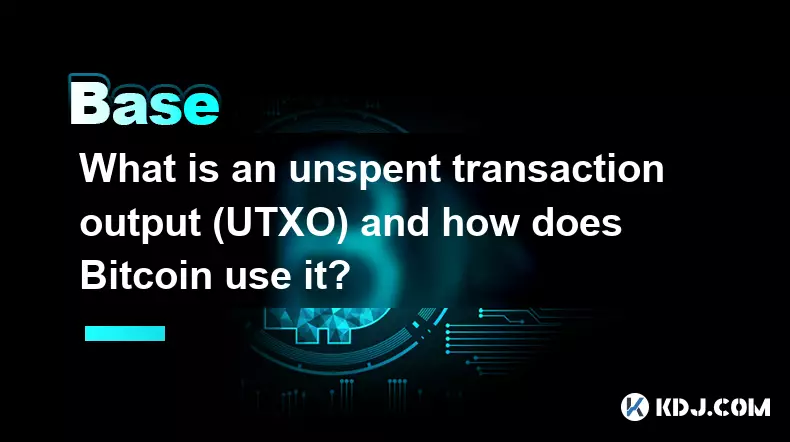
What is an unspent transaction output (UTXO) and how does Bitcoin use it?
Nov 12,2025 at 01:40am
Understanding the Concept of Unspent Transaction Output (UTXO)1. An Unspent Transaction Output, commonly referred to as UTXO, is a fundamental compone...

How does a crypto insurance protocol work?
Nov 08,2025 at 12:39am
Understanding Crypto Insurance Protocols1. A crypto insurance protocol operates by offering financial protection against losses incurred from digital ...
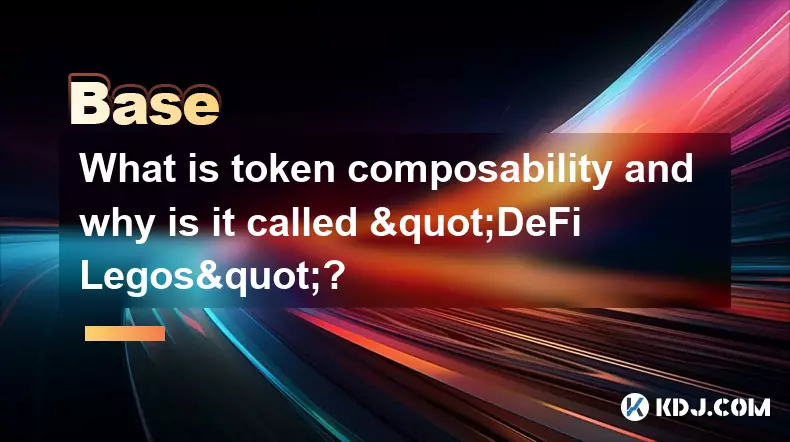
What is token composability and why is it called "DeFi Legos"?
Nov 09,2025 at 06:39am
Bitcoin's Role in Decentralized Finance1. Bitcoin remains the cornerstone of decentralized finance, serving as a benchmark for value and trustlessness...

What is an "exploit" versus a "hack" in the context of smart contracts?
Nov 09,2025 at 12:40am
Understanding Exploits in Smart Contracts1. An exploit refers to the utilization of a known vulnerability within a smart contract’s code to gain unint...

What is the difference between a transparent and a shielded transaction?
Nov 10,2025 at 05:59pm
Understanding Transparent Transactions in Cryptocurrency1. Transparent transactions are the standard form of transaction on most public blockchains li...

What is a "crypto airdrop farmer" and what strategies do they use?
Nov 09,2025 at 03:39pm
What Is a Crypto Airdrop Farmer?1. A crypto airdrop farmer is an individual who actively participates in blockchain projects to qualify for free token...

What is an unspent transaction output (UTXO) and how does Bitcoin use it?
Nov 12,2025 at 01:40am
Understanding the Concept of Unspent Transaction Output (UTXO)1. An Unspent Transaction Output, commonly referred to as UTXO, is a fundamental compone...

How does a crypto insurance protocol work?
Nov 08,2025 at 12:39am
Understanding Crypto Insurance Protocols1. A crypto insurance protocol operates by offering financial protection against losses incurred from digital ...

What is token composability and why is it called "DeFi Legos"?
Nov 09,2025 at 06:39am
Bitcoin's Role in Decentralized Finance1. Bitcoin remains the cornerstone of decentralized finance, serving as a benchmark for value and trustlessness...

What is an "exploit" versus a "hack" in the context of smart contracts?
Nov 09,2025 at 12:40am
Understanding Exploits in Smart Contracts1. An exploit refers to the utilization of a known vulnerability within a smart contract’s code to gain unint...
See all articles









































































